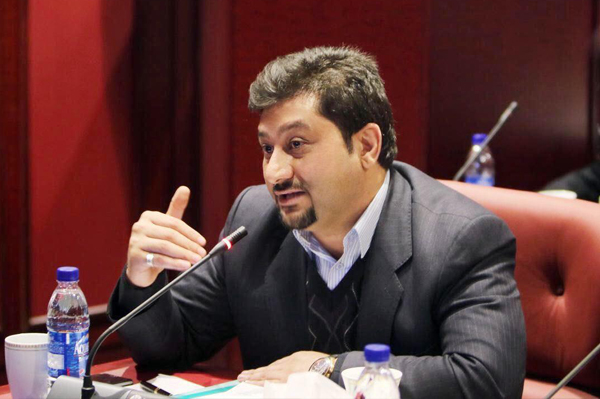The main challenges of the animal feed industry in joining the WTO

A Note by Majid Movafrgh Ghadirli, Chairman of the Iran Feed Industry Association:
The main challenges of the animal feed industry in joining the WTO
Incorporation to the World Trade Organization creates the challenges for animal husbandry and animal feed sectors of the country. However, it will also provide opportunities for the industry to be into the development circuit. In order to take advantage of opportunities and cope with the challenges, it is important to consider the issue of preparing activists of these sectors as a macro policy.
Majid Movafegh Ghadirly
Chairman of Iran Feed Industry Association
Member of the Representative of Iran Chamber of Commerce
The World Trade Organization was established in 1995 and has become one of the symbols of globalization in the field of economics and commerce. Currently, 160 countries are members of this organization and 24 countries are in the process of membership.
One of the main challenges facing Iran after incorporation to the World Trade Organization is to endanger the lives of domestic industries, including the feed industry, after removing or reducing the barriers to foreign imports, as well as barriers to the presence of foreign companies inside the country.
In this article, we plan to address the most important challenges and obligations associated with the animal feed sector when joining the WTO.
The most important Commitments related to animal feed:
** Reduction of tariff barriers:
One of the most prominent commitments of countries in the process of joining the World Trade Organization is to reduce tariffs on imports of products from other member countries.
For the animal feed sector, what is foreseeable is the effort of the negotiating parties with a strong industry of animal Feed such as the United States and the European Union to reduce tariffs on imports of animal feed and a more significant presence in the livestock market in Iran.
Of course, let's not forget that in Iran there are bureaucracies, laws and strict restrictions on the import and export of similar products of domestic production, which contradicts the principles adopted by the WTO.
** Removing of Non-tariff barriers entirely or gradually:
Removing Non-tariff barriers to trade is also one of the common obligations of countries to join WTO. Of course, according to the WTO, each country is allowed to regulate and enforce standards to ensure the safety of imported products and protect the health of its population.
An important objective of this agreement is to prevent abuses of these regulations in order to create a barrier to trade. Also, one of the most important issues in this agreement is the harmonization of these regulations and standards
so that the countries commit to using them in the event that there are international regulations and standards on a subject as well as adapt their internal regulations to them.
** Commitments relating Intellectual Property Rights:
An important aspect of this agreement is patent. Applicant countries will be committed to respecting the patent of animal feed products and will only produce livestock, poultry and fish feed after the expiration of the patent protection period.
This issue, of course, could have important implications for the access of developing countries to new or domestic types of livestock, poultry and aquaculture feed products.
Our country has not yet committed itself to this principle, so many of the patented products which currently produce in the country should be stopped. Further, after incorporation, we will have many challenges in accessing supplements, feed additives as well as animal and human health care costs challenges.
** Monopoly of data:
In the animal feed sector, the purpose of the data is the results of the clinical and animal testing of innovative feed companies on their products. Innovative feed companies need to submit this information to regulatory authorities for obtaining the permission in order to enter a country's market.
What is certain is that achieving a successful accession to the livestock sector and other sectors of the economy requires preparation of the business environment and the gradual reform of the internal and external regulations.
Therefore, considering the above items, what is certain is that for achieving a successful accession, it requires the preparation of the business atmosphere and the gradual reform of the internal and external regulations not only in the animal husbandry section, but in the other sectors of the economy. This matter will not be achieved unless by spending enough time and using the knowledge and experience of individuals and institutions associated with these issues.